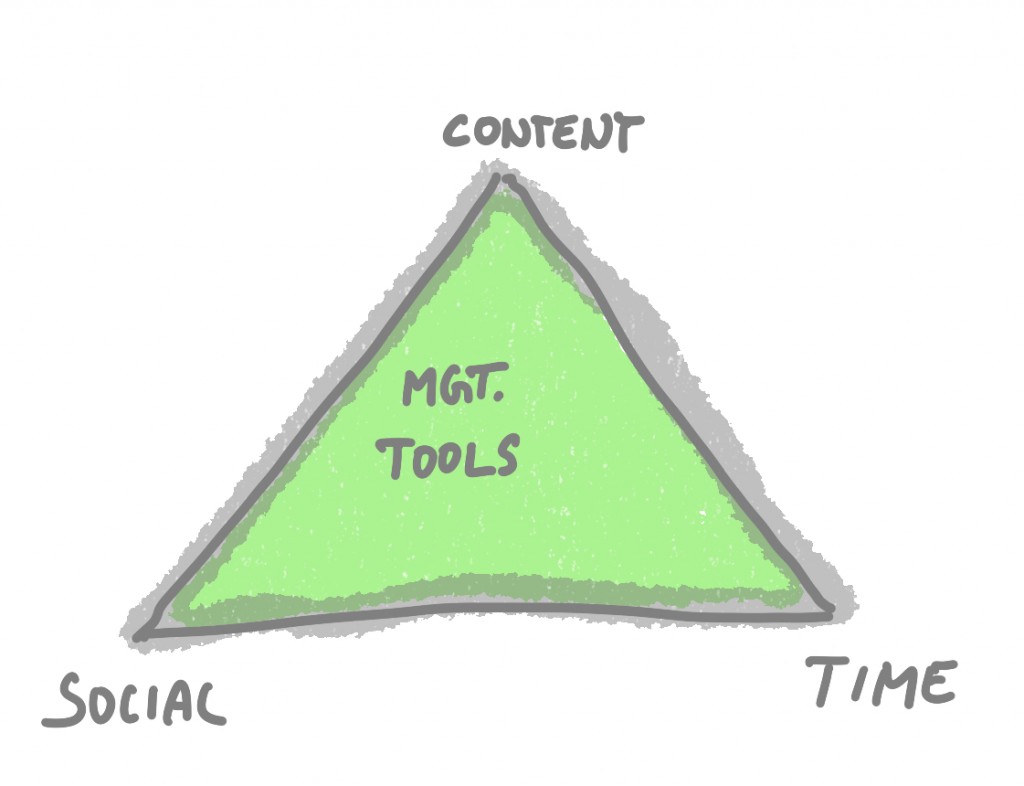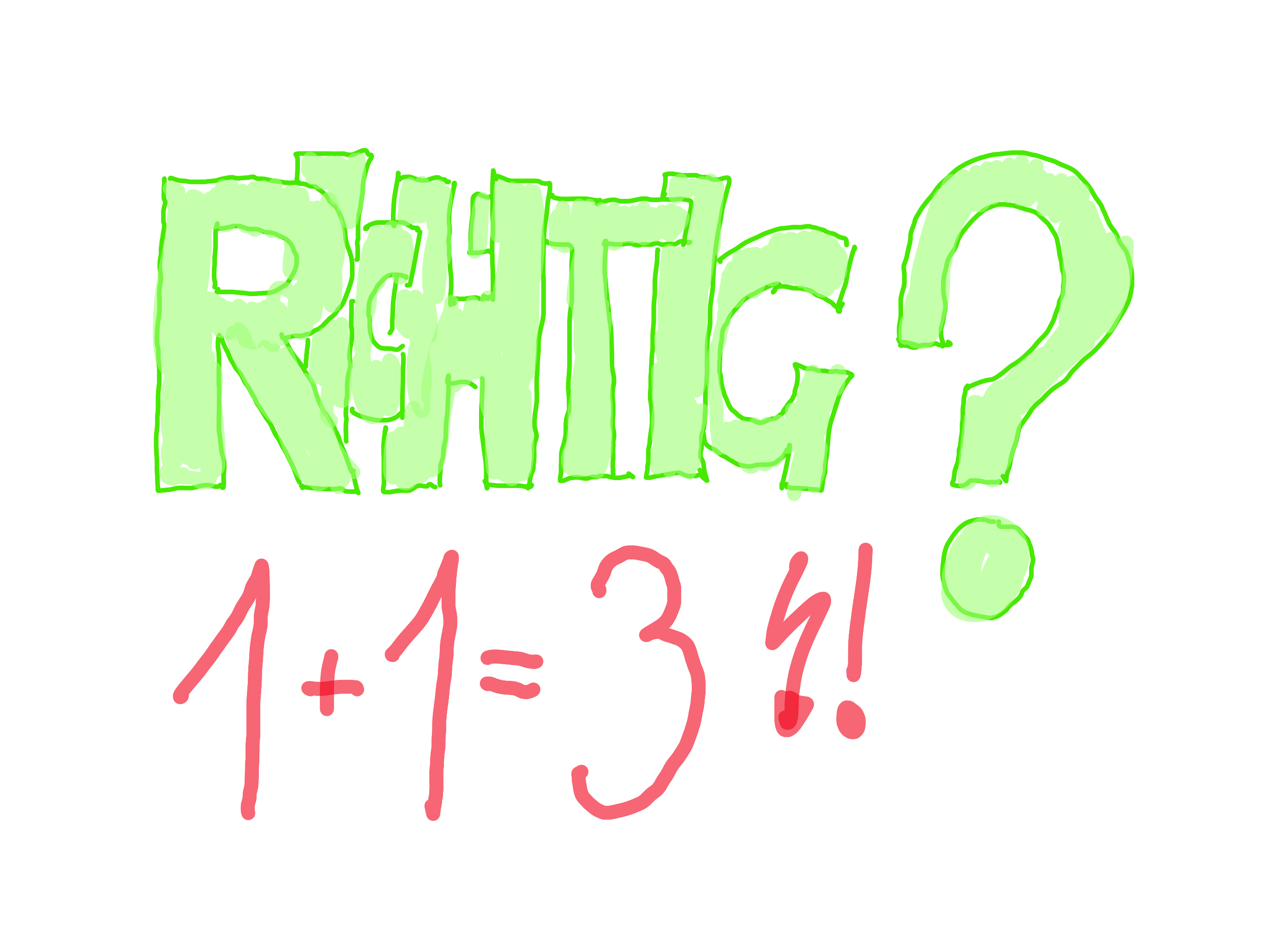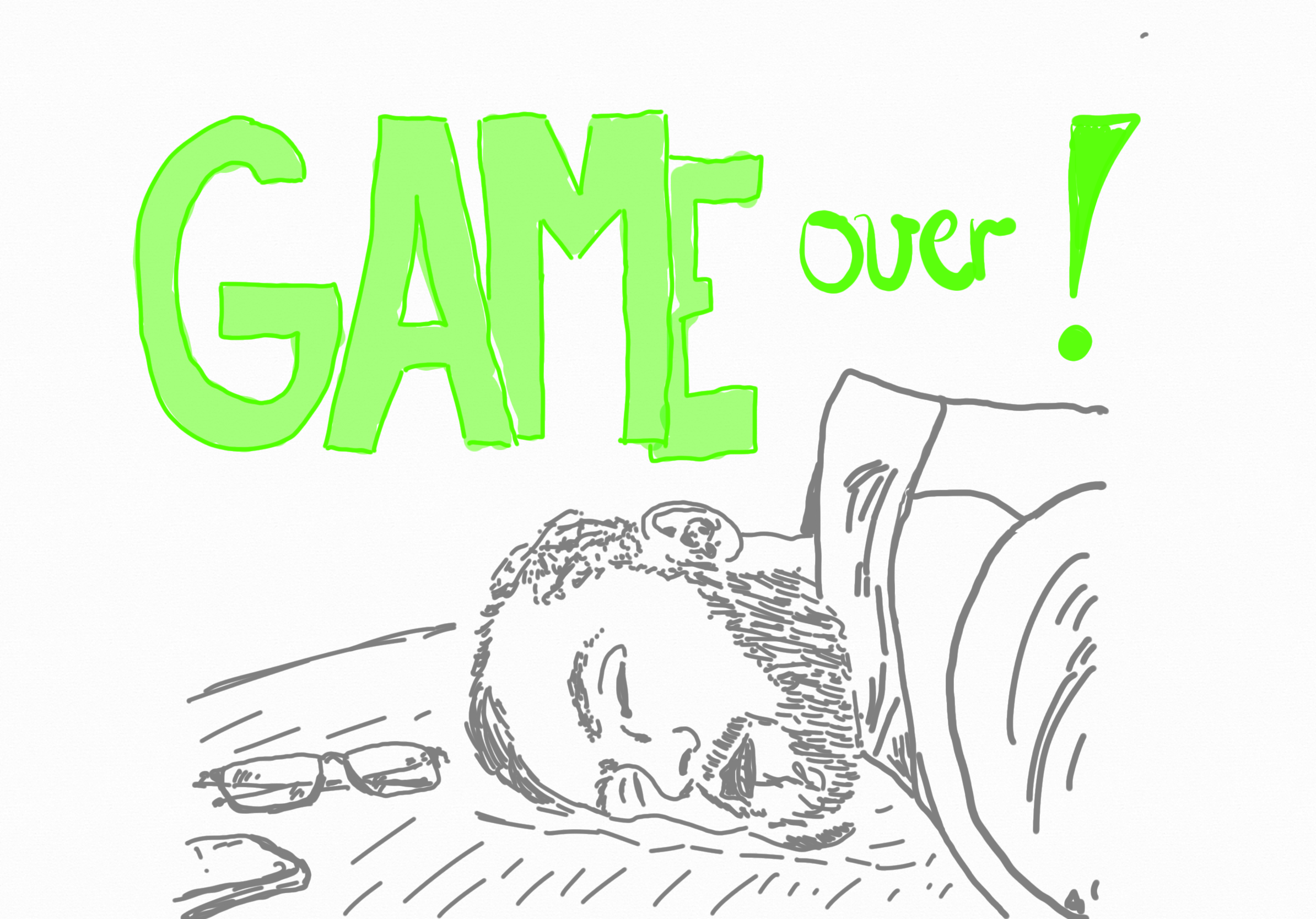Since a few month I work with a global organization implementing a standardized set of management tools for their leaders, to get a common language and common level of work practice. What I experienced along several workshops I did there is a very narrow u derstanding of the term “management tool”. Maybe it is because most of the managers have an engineering background, but most understand management tools equal to engineering tools, focussing mainly on the method of the tool and its result.

In this context I developed a broader view based on Niklas Luhmanns three dimensions: the content, the social and the time dimension. In comparison to engineering tools whick focus mainly on a technical result (but not always), management tools aim on supporting social problems and situations. This means they are much more complex and manifold.
Content: The most obvious dimension is the content dimension of tools is the content dimension. Each tools helps in specific situations and for specific purposes. An FMEA (Failure Mode Effect Analysis) helps in Quality Management identifying specific risks and impacts. Or a Balanced Scorecard helps to define and align objectives across different units and hierarchy levels in a holistic way. A manager needs to know the purpose and application of tools to facilitate and support the team, although not needing in depth knowledge for execution.
Social: The social dimension of tools is often forgotten. This perspectives describes how tool application differs depending on the social context in which they are applied. In the case of the FMEA, it matters significantly, if the tool template is filled out individually and is sent around via email or if the FMEA is developed in a workshop setting with a mixed group of engineers with different backgrounds. A manager needs to be aware of this dimension to know the different impact of various ways of application in certain situations.
Time: The time dimension is the the third on to be aware of when it comes to application of management tools. Tools can influence the percieved and real time of processes significantly based on the tool application. An FMEA workshop can slow down the speed of a development process for a short period of time, helping to sit back and have a more indepth reflection on the current situation and what was developed so far. On the other hand tools can speed up certain process sequences by applying standardized templates or frameworks everyone knows. THis can save significant time in certain situations by speaking the same language and having the same mind model. Managers have to be aware of the impact of tool application on time to set the framing of the tool application accordingly.
This quick overview should have shown you that tool application is not that simple as often thought. Managers need to have all three dimensions in mind before asking for application of existing or development of new tools. What is your experience on the successful application of management tools?







As an applicant of management tools for many years I am deeply concerned. This thougt model has clarified a few things that so far I only adressed intuitively, at best. It will definitely change my application of management tools. Thank you!